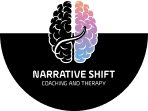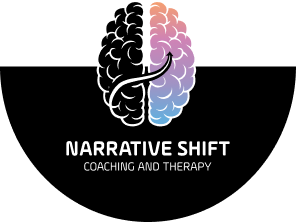

Skip to content
Blog Post
Supporting the Journey: How Parents and Partners Shape Neurodivergent Recovery
Finding the line between supportive assistance and enabling dependency remains one of the greatest challenges for parents and partners. The podcast highlighted how excessive help, despite good intentions, can undermine the development of crucial skills.
Support involves:
-
-
- Providing tools and guidance
- Offering assistance when truly needed
- Gradually stepping back as skills develop
Enabling occurs when:
-
-
- Natural consequences are removed
- Problems are solved for the individual
- Independence is unintentionally stunted
The most effective approach involves:
-
- Clear, consistent boundaries
- Natural consequences when appropriate
- Collaborative problem-solving
- Gradual transfer of responsibility
Building the Path Forward
Supporting a loved one with neurodivergence isn’t about having all the answers—it’s about creating an environment where growth, understanding, and mutual respect can flourish.
By examining our own approaches to communication, expectations, emotional regulation, and support, we can transform our impact from potentially hindering to actively nurturing our loved ones’ journey toward their fullest potential.
Remember that this journey involves growth for everyone involved—not just the neurodivergent individual, but also the parents, partners, and others who share their path.
The key lies in collaborative goal-setting that:
-
- Honors the individual’s interests and strengths
- Creates achievable stepping stones toward larger goals
- Allows for flexibility and adjustment
- Celebrates progress in all its forms
The Mirror of Regulation: Co-Regulation in Action
Perhaps the most profound insight from the podcast discussion centered on co-regulation—the way a parent or partner’s emotional state directly influences their loved one’s ability to regulate emotions.
“When parents lose their calm, it’s like throwing gasoline on a fire,” Justine explained. “Staying composed and empathetic can de-escalate even the most challenging situations.”
For neurodivergent individuals who may already struggle with emotional regulation, having a calm, grounded presence makes all the difference. This doesn’t mean suppressing emotions, but rather modeling healthy regulation:
-
- Taking breaks when emotions intensify
- Naming feelings openly: “I’m feeling frustrated right now, so I’m going to take a deep breath”
- Returning to discussions after everyone has regulated
Supporting Without Enabling: The Balance
Finding the line between supportive assistance and enabling dependency remains one of the greatest challenges for parents and partners. The podcast highlighted how excessive help, despite good intentions, can undermine the development of crucial skills.
Support involves:
-
-
- Providing tools and guidance
- Offering assistance when truly needed
- Gradually stepping back as skills develop
Enabling occurs when:
-
-
- Natural consequences are removed
- Problems are solved for the individual
- Independence is unintentionally stunted
The most effective approach involves:
-
- Clear, consistent boundaries
- Natural consequences when appropriate
- Collaborative problem-solving
- Gradual transfer of responsibility
Building the Path Forward
Supporting a loved one with neurodivergence isn’t about having all the answers—it’s about creating an environment where growth, understanding, and mutual respect can flourish.
By examining our own approaches to communication, expectations, emotional regulation, and support, we can transform our impact from potentially hindering to actively nurturing our loved ones’ journey toward their fullest potential.
Remember that this journey involves growth for everyone involved—not just the neurodivergent individual, but also the parents, partners, and others who share their path.
The Narrative:
For those navigating neurodivergence, the path to growth and healing often feels challenging and isolating. Traditional approaches tend to focus primarily on the individual’s efforts—whether through medication, personal strategies, or individual therapy—while overlooking the profound impact that parents, partners, and close relationships have on the recovery process. Many parents and partners find themselves stuck in cycles of frustration, not understanding how their own approaches might be hindering rather than helping their loved one’s progress.
The Shift:
Recovery from neurodivergence-related challenges isn’t a solo journey—it’s profoundly shaped by the environment and relationships surrounding the individual. By understanding how our communication styles, expectations, and emotional regulation affect our loved ones, we can transform our role from potential obstacles to powerful allies in the healing process.
The Foundation: Understanding and Acceptance
For neurodivergent individuals, especially children and adolescents, the feeling of being “different” can deeply affect self-esteem and motivation. How parents and partners respond to these differences sets the tone for the entire recovery journey.
In a powerful discussion on the Miss ADD Podcast, Justine Ruotolo (founder of Narrative Shift Coaching and Therapy) emphasized a crucial point: “Children need to feel loved for who they are, not for what they do. Acceptance builds a foundation of trust and motivation.”
This doesn’t mean abandoning guidance or structure. Rather, it means approaching differences with curiosity and compassion instead of judgment or frustration. When individuals feel accepted in their neurodivergence, they’re more likely to engage in growth-oriented strategies rather than hiding their struggles.
The Language of Support
Communication isn’t just about the words we choose—it encompasses tone, timing, and non-verbal cues that can profoundly impact neurodivergent individuals who often process information differently.
As Justine shared, “Even if parents don’t use critical words, their tone can convey judgment. Children sense when their parents are invested or dismissive.”
Effective communication with neurodivergent loved ones involves:
Using curiosity instead of criticism:
-
- “I notice this has been difficult. What would make it easier?” rather than “Why can’t you just get this done?”
Acknowledging effort, not just results:
-
- “I see how hard you worked on focusing today” instead of only praising completed tasks.
Creating safe space for expression:
-
- “It’s okay to feel frustrated. Let’s figure this out together” rather than dismissing emotional responses.
Expectations: Supportive Structures vs. Crushing Pressure
Many parents and partners set high expectations, believing this will motivate their loved ones. While appropriate goals are essential, the podcast discussion revealed how unrealistic or rigid expectations can backfire.
A poignant example shared involved a child being pressured to excel academically after starting ADHD medication. While grades improved, the child felt disconnected from their identity and struggled with self-expression.
Finding the line between supportive assistance and enabling dependency remains one of the greatest challenges for parents and partners. The podcast highlighted how excessive help, despite good intentions, can undermine the development of crucial skills.
Support involves:
-
-
- Providing tools and guidance
- Offering assistance when truly needed
- Gradually stepping back as skills develop
Enabling occurs when:
-
-
- Natural consequences are removed
- Problems are solved for the individual
- Independence is unintentionally stunted
The most effective approach involves:
-
- Clear, consistent boundaries
- Natural consequences when appropriate
- Collaborative problem-solving
- Gradual transfer of responsibility
Building the Path Forward
Supporting a loved one with neurodivergence isn’t about having all the answers—it’s about creating an environment where growth, understanding, and mutual respect can flourish.
By examining our own approaches to communication, expectations, emotional regulation, and support, we can transform our impact from potentially hindering to actively nurturing our loved ones’ journey toward their fullest potential.
Remember that this journey involves growth for everyone involved—not just the neurodivergent individual, but also the parents, partners, and others who share their path.
For neurodivergent individuals who may already struggle with emotional regulation, having a calm, grounded presence makes all the difference. This doesn’t mean suppressing emotions, but rather modeling healthy regulation:
-
- Taking breaks when emotions intensify
- Naming feelings openly: “I’m feeling frustrated right now, so I’m going to take a deep breath”
- Returning to discussions after everyone has regulated
Supporting Without Enabling: The Balance
Finding the line between supportive assistance and enabling dependency remains one of the greatest challenges for parents and partners. The podcast highlighted how excessive help, despite good intentions, can undermine the development of crucial skills.
Support involves:
-
-
- Providing tools and guidance
- Offering assistance when truly needed
- Gradually stepping back as skills develop
Enabling occurs when:
-
-
- Natural consequences are removed
- Problems are solved for the individual
- Independence is unintentionally stunted
The most effective approach involves:
-
- Clear, consistent boundaries
- Natural consequences when appropriate
- Collaborative problem-solving
- Gradual transfer of responsibility
Building the Path Forward
Supporting a loved one with neurodivergence isn’t about having all the answers—it’s about creating an environment where growth, understanding, and mutual respect can flourish.
By examining our own approaches to communication, expectations, emotional regulation, and support, we can transform our impact from potentially hindering to actively nurturing our loved ones’ journey toward their fullest potential.
Remember that this journey involves growth for everyone involved—not just the neurodivergent individual, but also the parents, partners, and others who share their path.
The key lies in collaborative goal-setting that:
-
- Honors the individual’s interests and strengths
- Creates achievable stepping stones toward larger goals
- Allows for flexibility and adjustment
- Celebrates progress in all its forms
The Mirror of Regulation: Co-Regulation in Action
Perhaps the most profound insight from the podcast discussion centered on co-regulation—the way a parent or partner’s emotional state directly influences their loved one’s ability to regulate emotions.
“When parents lose their calm, it’s like throwing gasoline on a fire,” Justine explained. “Staying composed and empathetic can de-escalate even the most challenging situations.”
For neurodivergent individuals who may already struggle with emotional regulation, having a calm, grounded presence makes all the difference. This doesn’t mean suppressing emotions, but rather modeling healthy regulation:
-
- Taking breaks when emotions intensify
- Naming feelings openly: “I’m feeling frustrated right now, so I’m going to take a deep breath”
- Returning to discussions after everyone has regulated
Supporting Without Enabling: The Balance
Finding the line between supportive assistance and enabling dependency remains one of the greatest challenges for parents and partners. The podcast highlighted how excessive help, despite good intentions, can undermine the development of crucial skills.
Support involves:
-
-
- Providing tools and guidance
- Offering assistance when truly needed
- Gradually stepping back as skills develop
Enabling occurs when:
-
-
- Natural consequences are removed
- Problems are solved for the individual
- Independence is unintentionally stunted
The most effective approach involves:
-
- Clear, consistent boundaries
- Natural consequences when appropriate
- Collaborative problem-solving
- Gradual transfer of responsibility
Building the Path Forward
Supporting a loved one with neurodivergence isn’t about having all the answers—it’s about creating an environment where growth, understanding, and mutual respect can flourish.
By examining our own approaches to communication, expectations, emotional regulation, and support, we can transform our impact from potentially hindering to actively nurturing our loved ones’ journey toward their fullest potential.
Remember that this journey involves growth for everyone involved—not just the neurodivergent individual, but also the parents, partners, and others who share their path.




